Uncategorized
-
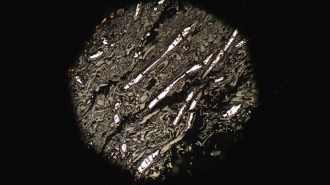 Environment
EnvironmentEarth’s oldest known wildfires raged 430 million years ago
430-million-year-old fossilized charcoal suggests atmospheric oxygen levels of at least 16 percent, the amount needed for fire to take hold and spread.
By Sid Perkins -
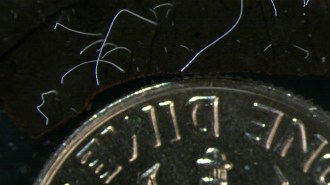 Microbes
MicrobesThis giant bacterium is the largest one found yet
On average, Thiomargarita magnifica measures 1 centimeter long and maxes out at 2 centimeters. It is 50 times larger than other giant bacteria.
-
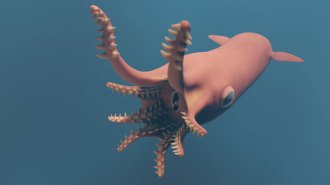 Paleontology
PaleontologyVampire squid are gentle blobs. But this ancestor was a fierce hunter
New fossil analyses of 164-million-year-old ancestors of today’s vampire squid show the ancient cephalopods had muscular bodies and powerful suckers.
-
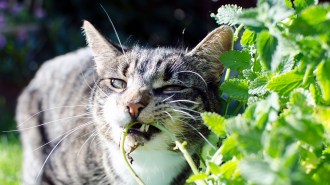 Chemistry
ChemistryCats chewing on catnip boosts the plant’s insect-repelling powers
When cats tear up catnip, it increases the amount of insect-repelling chemicals released by the plants.
By Anil Oza -
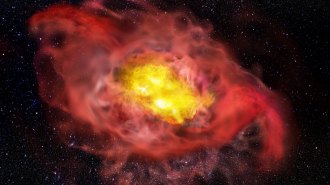 Astronomy
AstronomyAn otherwise quiet galaxy in the early universe is spewing star stuff
Seen as it was 700 million years after the Big Bang, the galaxy churns out a relatively paltry number of stars. And yet it’s heaving gas into space.
By Liz Kruesi -
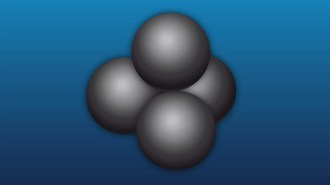 Physics
PhysicsPhysicists may have finally spotted elusive clusters of four neutrons
Long-sought clumps of four neutrons called tetraneutrons last less than a billionth of a trillionth of a second, an experiment suggests.
-
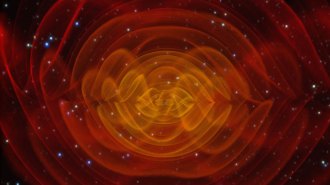 Astronomy
AstronomyGravitational wave ‘radar’ could help map the invisible universe
Gravity ripples scattering off warped spacetime near massive objects might help astronomers peer inside stars and find globs of dark matter.
By Asa Stahl -
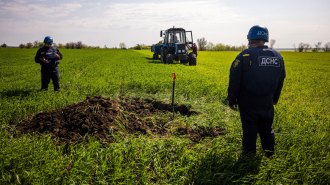 Science & Society
Science & SocietyRussia’s invasion could cause long-term harm to Ukraine’s prized soil
War will physically and chemically damage Ukraine’s prized, highly fertile chernozem soils. The impacts on agriculture could last for years.
-
 Physics
PhysicsHow fast a row of dominoes topples depends on friction
Computer simulations reveal that two types of friction are important in determining how quickly dominoes collapse.
-
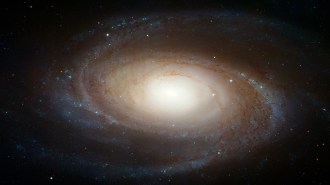 Astronomy
AstronomySeven newfound dwarf galaxies sit on just one side of a larger galaxy
Seven newly found dwarf galaxy candidates are stick to just one side of the large galaxy M81. Astronomers don’t know why.
By Liz Kruesi -
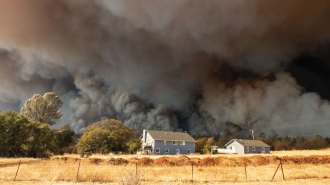 Health & Medicine
Health & MedicineWestern wildfires’ health risks extend across the country
As western wildfires become more common, hazardous smoke is sending people — especially children — to emergency rooms on the East Coast.
By Megan Sever -
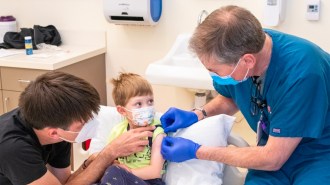 Health & Medicine
Health & MedicinePfizer’s and Moderna’s COVID-19 vaccines are OK’d for the youngest kids
Babies, toddlers and preschoolers could begin getting immunized against COVID-19 as early as June 21 in the United States.